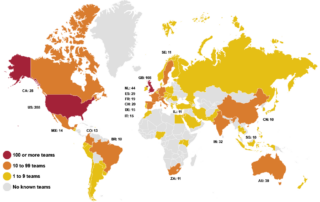The Making of an Expert: The Joy Factor
The pursuit of expertise has been a longstanding goal for us humans. Drawing from key research on how we build skills, we highlight the intrinsic connection between joy and the development of expertise in one’s field. By understanding joy as a vital component of expertise, we propose the concept of joyful expertise – a holistic approach to skill development. Potential contributors to joyful expertise include social connection, grit and resilience building, finding aligned environments, and the prioritization of holistic well-being.
Decoding Human Behaviour: An Exploration of Behavioural Science Methodologies
Selecting the right methodology for researching and exploring human behaviour can be a challenge. This article provides an overview of different applied behavioural science methodologies and offers some simple steps toward selecting the most suitable approach to gain insights into human behaviour.
Pricing Strategy: How Our Brains Keep Us Stuck
Pricing strategy is a funny area of business that everyone seems to hate. What role does the brain play in this, and how can you leverage behavioral economics to overcome your brain’s natural tendencies?
8 Ways to Drive Conversions and User Engagement Online
Some apps or websites are beautiful, stylish, and well thought out in terms of UX, but have one problem: they are boring. These products can trigger both desire and resistance in the user at the same time. Here are a few tricks that will help solve this problem not from a rational, but from an emotional side.
Are Our Own Behavioral Biases Biasing Us Against Behavioral Science?
There have been a lot of juicy headlines in behavioral science around replicability and the falsification of data. I can’t help but wonder whether these spotlights are distracting (read: biasing) us from the potential and existing contributions of the field as a whole. Perceptions of behavioral science are just as vulnerable to our perceptions and biases. Is it possible that the field is suffering from the effects of its own contributions?
The Rapid Growth of Behavioral Science
The field of behavioral science is growing. Practitioners are now spread across 72 countries, facing challenges such as making the case for behavioral science (see also the BE Guide 2023 editorial) and measuring its impact. Our survey aims to understand this growth and welcomes participation from practitioners and researchers worldwide, especially from regions outside Western developed countries.






